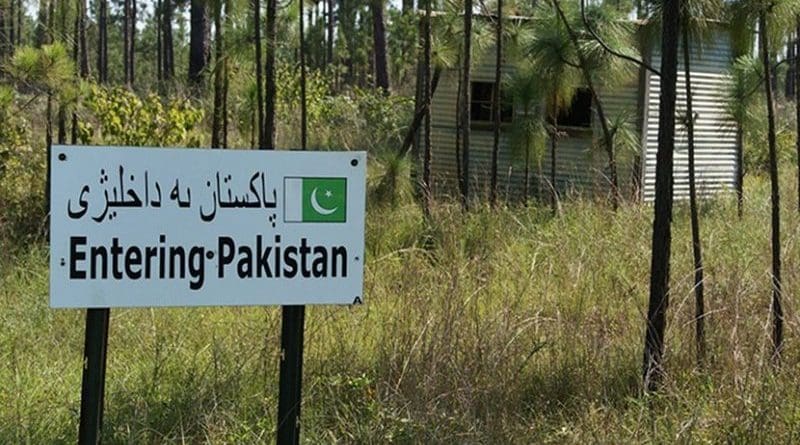Fallout Of The Russia-West Economic War Of Attrition For Pakistan – OpEd
By Sabina Babar
Renowned historian Adam Tooze has warned that the world faces a ‘Poly-Crisis’ — a perfect storm of impending global financial and socioeconomic crises. The once-comprehensible map of the world order has turned into a tangled mess, giving rise to a series of economic challenges. The global economy was already under stress due to COVID-19, and the Russia-West economic war has further exacerbated the existing situation. The conflict is not just an indirect military engagement, but also an economic war of attrition on a scale that was unthinkable a year ago and unprecedented in its far-reaching impact on the financial stability of a deeply inter-connected world.
Since the outset of the Russia-Ukraine conflict — the Western world, led by the US — has wielded sanctions as an economic weapon against Russia by choosing an approach of ‘supply-side damage’ to impact the Russian economy while failing to adequately plan for the inevitable consequences of such a strategy for the rest of the world, including itself. Europe is paying a heavy price, primarily in the form of surging energy prices along with rising interest rates in response to inflationary pressure. According to the European Energy Council Report, the Ukrainian conflict would reduce global productivity by about US $1 trillion this year, with a 2.8% growth in the world economy rather than the previously forecast 3.9%. The current trajectory of the war is heading into what appears to be a longstanding economic war of attrition between Russia and the West. Russia’s announcement of the suspension of the gas supply for an indefinite period created a wave of concern in Europe as it became impossible to replace a dependency of this magnitude on such short notice. The G20 countries also saw a decline in their aggregate gross domestic product. According to the European Energy Council Meeting in November, the rise in gas and electricity prices has put pressure on the EU economy, affecting the competitiveness of European enterprises and jeopardizing EU cohesion.
The snowballing effects of the Russia-West economic war are massive, including a global surge in energy, gas, and oil prices along with a rise in interest rates for the developing world. Pakistan needs to tread the trade situation with Russia carefully, as the EU is its largest export destination and granted Pakistan GSP+ status back in 2014, which is due to expire in 2023. Pakistan is in dire need of discounted oil and wheat from Russia and also does not want to jeopardise the impending renewal of its GSP+ status with the EU.
Rising oil prices have impacted both Pakistan’s soaring inflation and led to a reduction in access to basic commodities. Despite receiving billions of dollars in loans from global financial institutions in recent months, Pakistan’s economic condition remains precarious. According to a World Bank analysis published in October, inflation in Pakistan is predicted to reach above 23% in the coming fiscal year due to notably tighter global monetary conditions. According to the Pakistan Statistical Board, owing to higher international prices, the import bill of crude oil and petroleum increased from $7.55 billion to $14.81 billion in the current fiscal year. Furthermore, the Russia-Ukraine conflict has resulted in surging LNG prices, which is of concern for Pakistan as most LNG suppliers have backed out of their contracts to gain cost-effective advantages from European markets.
In the food sector, Pakistan was the third largest consumer of wheat imported from Ukraine and Russia, and from 2020–2021, the government of Pakistan was planning to increase wheat production. Unfortunately, the predicted amount of the crop may not be realised because of a fertiliser shortage and heavy losses of crops due to the recent floods, thus increasing food insecurity in Pakistan. To enhance supply and avoid shortages, the government is aiming to import almost 2 million tonnes of wheat. However, the Economic Coordination Committee of Pakistan (ECC) has yet to finalise the method of payment due to the exclusion of Russia from SWIFT — a widely used worldwide inter-banking system of payment. The conflict will impact the average person by driving up the cost of raw materials as well as creating a scarcity of essential goods. The price index change is also considerably more extreme, leaving people facing substantially higher costs for basic food staples. Pakistan has seen a considerable rise in its consumer price index, up to 194 points, with the inflation rate hitting 26.6% in October.
It is imperative for nations like Pakistan to take precautionary measures for the worst-case scenario. First, there is a requirement for strict fiscal discipline by focusing on public financial management reforms and bringing transparency and credibility to the budget cycle. Secondly, there should be an emphasis on bolstering local energy generation systems and limiting the import of LNG. Thirdly, to deal with the food crisis and shortage, a push should be made on establishing inventories for food staples and commodities. Fourthly, to handle the international commodity price strain, it is important to consider indigenisation by investing in the manufacturing and processing sector.
The economic aspect of this war has contributed to Pakistan’s already worsening current account and fiscal balances as well as its economic stagnation. As the conflict is still unfolding, the long-term consequences will become visible in due time. Pakistan must carefully examine its strategic position in the global economic context, making informed but timely decisions to weather the storm.
Sabina Babar is a Researcher at the Centre for Aerospace and Security Studies (CASS), Lahore. She can be reached at [email protected]

